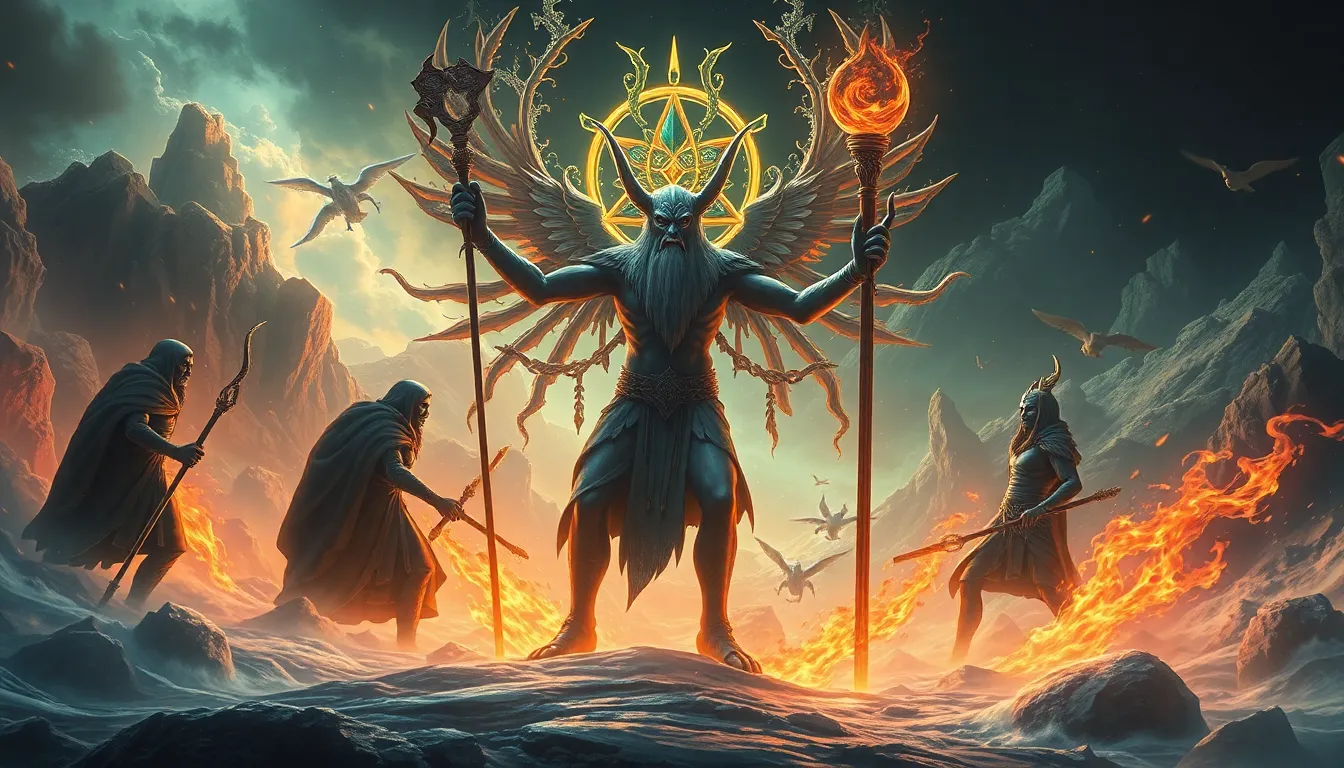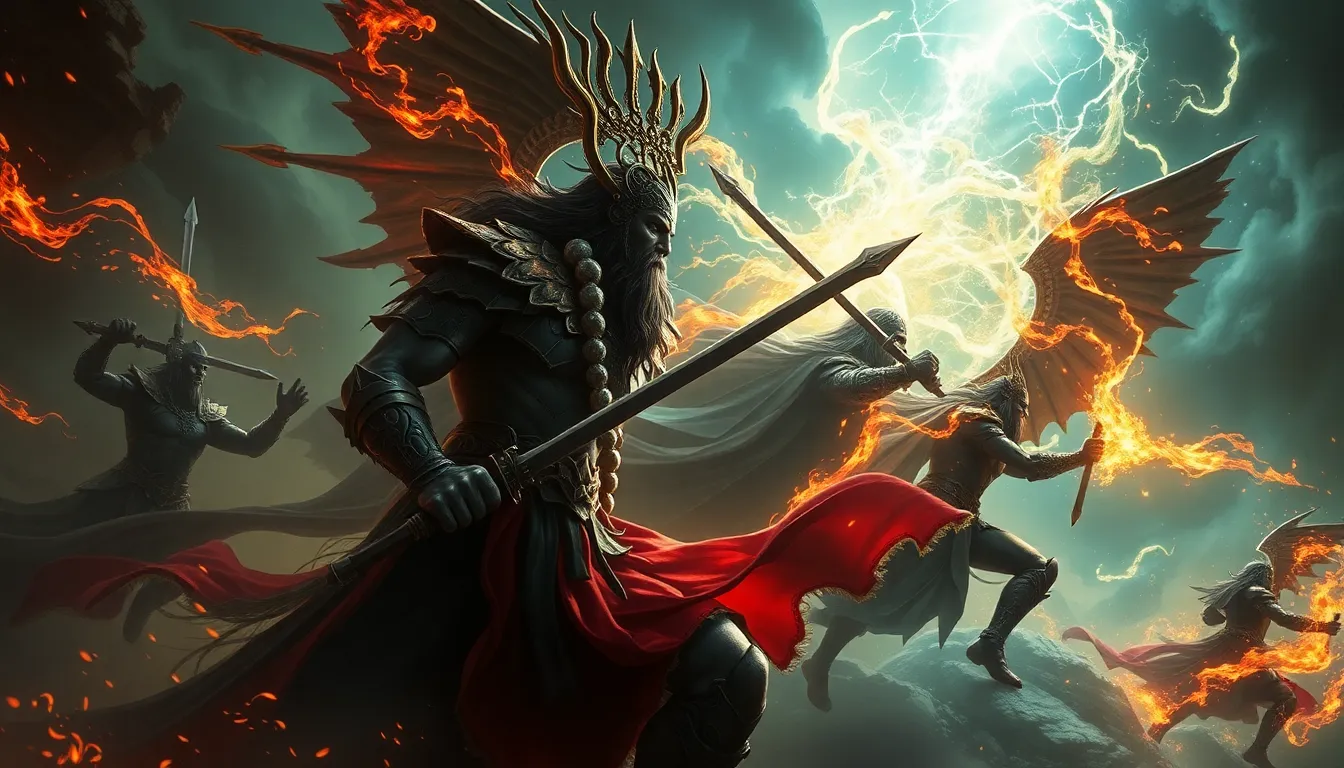The Myth of the Great Catalyst: Morality in Action
Introduction
The notion of the Great Catalyst in moral philosophy refers to a pivotal event or individual believed to incite significant moral change within society. This concept suggests that profound moral shifts can often be traced back to a singular influence, painting a picture of morality that simplifies its complex and multifaceted nature. However, morality is more accurately defined as a dynamic interplay of numerous factors—emotional, social, cultural, and historical. This article aims to explore and dismantle the myths surrounding the catalysts for moral action, highlighting how morality is often the result of collective efforts rather than isolated incidents.
Historical Perspectives on Morality
Throughout history, thinkers have debated the essence and origins of morality. Ancient philosophers like Plato and Aristotle laid foundational ideas about ethical behavior, positing that morality is rooted in rational thought and virtue. Plato emphasized the role of ideal Forms, while Aristotle introduced the concept of virtue ethics, which focused on character development and the pursuit of eudaimonia, or human flourishing.
As time progressed, ethical theories evolved into more structured frameworks. Deontology, championed by Immanuel Kant, argues that morality is based on adherence to rules and duties. In contrast, consequentialism, particularly utilitarianism, suggests that the moral value of an action is determined by its outcomes. Meanwhile, virtue ethics continued to evolve, emphasizing the importance of moral character and community in ethical considerations.
Religious and cultural influences have also played a crucial role in shaping moral frameworks. Various belief systems offer distinct moral guidelines, often emphasizing compassion, justice, and community welfare. The interplay of these philosophies and cultural narratives has contributed to the rich tapestry of moral thought throughout history.
The Great Catalyst: An Examination
The Great Catalyst is often exemplified by historical events such as revolutions, social movements, or influential figures who are believed to have sparked widespread moral action. For instance, the abolition of slavery in the 19th century is frequently attributed to figures like Frederick Douglass and Harriet Tubman, who inspired change through their activism.
However, this belief in a single catalyst overlooks the myriad of factors that contribute to moral action. It reduces complex social phenomena to simplistic narratives that fail to account for the collective efforts of countless individuals and the socio-political contexts in which they operate. The critique here is that such reductionist views on moral motivation ignore the nuanced interplay of various influences that drive ethical behavior.
Moral Psychology: Understanding Human Behavior
Moral psychology provides significant insights into how individuals make moral decisions. Key theories, such as Lawrence Kohlberg’s stages of moral development, suggest that moral reasoning evolves through various stages, influenced by cognitive development and social experiences. Jonathan Haidt’s social intuitionist model emphasizes the role of emotions and intuitions in moral decision-making, proposing that reasoning often follows intuitive judgments rather than leading them.
This interplay between emotion, reason, and social influences highlights the complexity of moral behavior. Empathy, for instance, is a critical component that drives individuals towards moral action. Social context also plays a vital role; individuals are more likely to engage in ethical behavior when supported by a community that values such actions.
Case Studies of Moral Action without a Catalyst
Exploring historical examples of grassroots movements reveals that significant moral changes often arise from collective efforts rather than singular catalysts. The abolitionist movement in the United States, for instance, involved numerous individuals, organizations, and small acts of defiance that cumulatively led to the end of slavery.
- The civil rights movement relied on countless activists, including unsung heroes who worked tirelessly within their communities.
- Everyday moral decisions often occur without a clear catalyst; for example, individuals choosing to stand against discrimination or contribute to their communities.
These examples demonstrate that moral action can result from a multitude of small, individual choices that collectively lead to significant societal change.
The Role of Community and Culture in Moral Action
Community values significantly shape individual moral choices. A strong sense of community can foster collective moral responsibility, leading individuals to act ethically in solidarity with one another. Cultural narratives also impact perceptions of morality, often dictating what is considered acceptable or taboo within societies.
Furthermore, the concept of collective consciousness—an awareness shared by a group—plays a crucial role in ethical behavior. When communities prioritize certain values, such as justice and equality, individuals within those communities are more likely to adopt and act upon these moral principles.
Challenging the Myth: Counterarguments and Alternative Views
While some argue for the existence of a Great Catalyst, it is essential to recognize that influential figures or events can inspire moral action without dictating it. For instance, while Martin Luther King Jr. inspired many during the civil rights movement, his impact was part of a broader coalition of activists and ideas rather than a solitary force.
Oversimplifying moral progress to singular catalysts can be dangerous. It risks erasing the contributions of countless individuals and can lead to a misunderstanding of how social change occurs. Recognizing the complexity of moral action is crucial for fostering a more nuanced understanding of ethical behavior.
Implications for Contemporary Society
The myth of the Great Catalyst holds significant relevance in today’s social justice movements. Understanding morality as a collective effort can inform activism by emphasizing the importance of community engagement and grassroots organizing. Recognizing that moral change often results from a multitude of actions rather than a single event can empower individuals to take initiative within their communities.
Moreover, fostering moral agency—understanding that each individual has the power to influence ethical outcomes—can cultivate a more active and engaged citizenry. Encouraging collective moral responsibility can lead to more profound and lasting societal change.
The Future of Morality in Action
As we navigate an increasingly globalized world, trends in moral reasoning and ethical behavior are evolving. The rise of technology poses new challenges and opportunities for moral engagement. Online platforms can amplify voices and mobilize communities, allowing for new forms of activism and ethical discourse.
Looking ahead, it is essential to predict how moral action may manifest in the future. Will we see a resurgence of grassroots movements that challenge the status quo? Will technology enhance our capacity for empathy and collective action? Only time will tell, but understanding the complexities of morality and the myth of the Great Catalyst will be crucial in shaping our ethical landscape.




